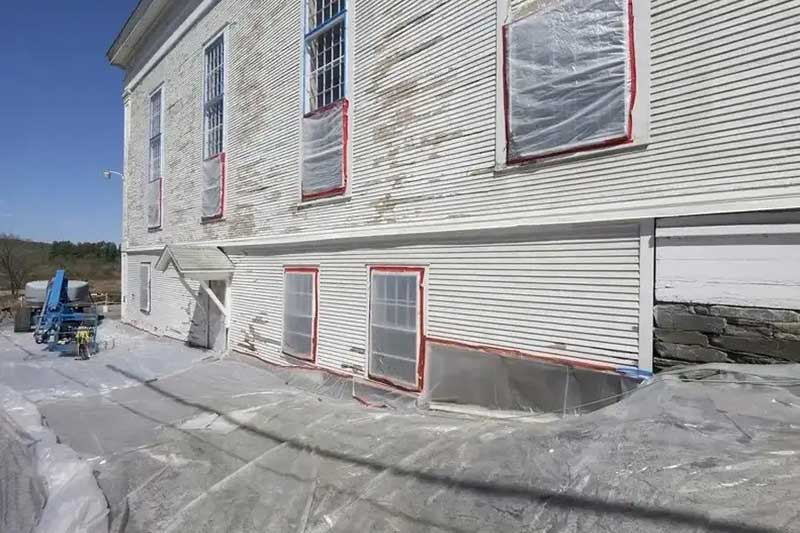The Role of Climate in Determining Paint Longevity
When it comes to improving your home’s look, painting the outside is a great choice. But did you know that weather can change how your paint lasts? Choosing the right time and conditions for painting can make all the difference. From rain to sun, each type of weather has its own effect on paint jobs. Understanding these impacts helps ensure a smooth and lasting finish.

The Impact of Temperature on Painting
Temperature plays a big role in how well paint sticks to surfaces. If it’s too hot, the paint may dry too quickly, leading to cracks or peeling later on. Cold weather, on the other hand, might prevent paint from drying properly, causing it to stay sticky longer than expected. For best results, aim for mild temperatures when planning your exterior painting project.
Humidity’s Effect on Paint Application
High humidity levels can cause problems during painting as they slow down the drying process. This can lead to uneven finishes or even mold growth under the paint layer. Ideally, choose a dry day with moderate humidity to achieve the best outcome for your exterior painting endeavor.

Sunlight and Its Influence on Drying Time
Direct sunlight can speed up the drying process significantly. While this might seem beneficial, it could actually lead to improper paint adhesion. The paint may dry on the surface before bonding completely with the wall, resulting in a less durable finish. It’s better to work in shaded areas or during times when the sun isn’t at its peak.
Rain: A Painter’s Worst Enemy
Rain is perhaps the most obvious threat to any painting project. It not only washes away wet paint but also affects curing if it happens shortly after application. Always check weather forecasts before starting your project to avoid unexpected showers ruining your hard work.
- Avoid painting immediately after rain
- Consider quick-drying paints for unpredictable climates
- Use tarps or covers to protect freshly painted areas
Windy Conditions and Their Challenges
Strong winds pose two main challenges: they can blow debris onto wet paint and cause uneven drying. Debris can stick to the fresh coat, creating an unsightly finish. Additionally, wind accelerates evaporation, similar to direct sunlight effects, compromising paint adherence. To minimize these risks, attempt painting on calm days.
Seasonal Considerations for Painting
Different seasons offer unique challenges and benefits for exterior painting. Spring and fall generally provide optimal conditions with mild temperatures and lower humidity. Winter might not be ideal due to cold temperatures, while summer can have extreme heat and thunderstorms. Plan accordingly based on your regional climate patterns to maximize success.
Professional Tips for Weather-Resistant Paint Jobs
- Select high-quality paints designed for specific weather conditions
- Consult local experts familiar with regional climate challenges
- Monitor daily weather forecasts throughout your project timeline
- Allow extra drying time during humid or cool spells
Cost Implications of Weather-Affected Projects
Poor timing can increase costs significantly due to wasted materials or repeated applications. By understanding how weather influences painting outcomes, homeowners save both time and money. Proper preparation ensures efficient use of resources while delivering long-lasting results.
Your Path to Perfect Paint Finishes
If you want a flawless paint job that stands up against nature’s elements, consider factors like temperature, humidity, sunlight exposure, and precipitation. Located in Brook, IN, I am here to help guide you through every step of your exterior transformation journey. Reach out to Mert Construction LLC at (219) 869-0194 today for expert advice tailored specifically towards achieving beautiful and durable painting results.
